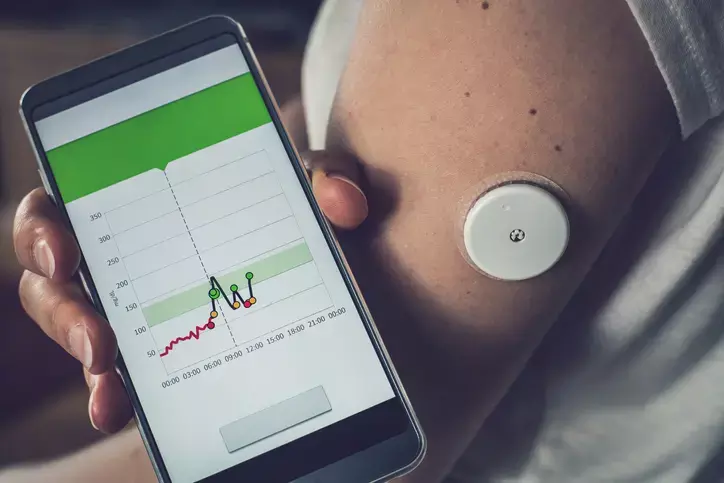- Home
- Medical news & Guidelines
- Anesthesiology
- Cardiology and CTVS
- Critical Care
- Dentistry
- Dermatology
- Diabetes and Endocrinology
- ENT
- Gastroenterology
- Medicine
- Nephrology
- Neurology
- Obstretics-Gynaecology
- Oncology
- Ophthalmology
- Orthopaedics
- Pediatrics-Neonatology
- Psychiatry
- Pulmonology
- Radiology
- Surgery
- Urology
- Laboratory Medicine
- Diet
- Nursing
- Paramedical
- Physiotherapy
- Health news
- Fact Check
- Bone Health Fact Check
- Brain Health Fact Check
- Cancer Related Fact Check
- Child Care Fact Check
- Dental and oral health fact check
- Diabetes and metabolic health fact check
- Diet and Nutrition Fact Check
- Eye and ENT Care Fact Check
- Fitness fact check
- Gut health fact check
- Heart health fact check
- Kidney health fact check
- Medical education fact check
- Men's health fact check
- Respiratory fact check
- Skin and hair care fact check
- Vaccine and Immunization fact check
- Women's health fact check
- AYUSH
- State News
- Andaman and Nicobar Islands
- Andhra Pradesh
- Arunachal Pradesh
- Assam
- Bihar
- Chandigarh
- Chattisgarh
- Dadra and Nagar Haveli
- Daman and Diu
- Delhi
- Goa
- Gujarat
- Haryana
- Himachal Pradesh
- Jammu & Kashmir
- Jharkhand
- Karnataka
- Kerala
- Ladakh
- Lakshadweep
- Madhya Pradesh
- Maharashtra
- Manipur
- Meghalaya
- Mizoram
- Nagaland
- Odisha
- Puducherry
- Punjab
- Rajasthan
- Sikkim
- Tamil Nadu
- Telangana
- Tripura
- Uttar Pradesh
- Uttrakhand
- West Bengal
- Medical Education
- Industry
Flash Glucose Monitoring Improves blood sugar control in diabetes, Finds Study

Adequate and timely glucose level assessment is indispensable for patients with diabetes mellitus (DM) treated with multiple daily injections (MDI) or continuous subcutaneous insulin infusion (CSII) when aiming for adequate glycemic control. A recent study suggests that higher flash glucose monitoring (FLASH)rate improves glycemic control. The study findings were published in the journal DIABETES RESEARCH AND CLINICAL PRACTICE on June 04, 2021.
In 2014, the first version of the FreeStyle Libre® Flash Glucose Monitoring System system was introduced in the Netherlands. And from December 2019, the FLASH is reimbursed for patients with DM using MDI or CSII. With increasing possibilities to use FLASH, there is a clear need for information on the effects of its use under real-life circumstances by larger groups of patients with DM. Therefore, Dr Peter R. van Dijk and his team conducted a study to evaluate the association between flash glucose monitoring (FLASH) frequency and glycemic parameters during real-life circumstances in the Netherlands.
In this Netherlands population study, researchers obtained glucose readings, de-identified them and uploaded them to a dedicated database when FLASH reading devices were connected to the internet. The researchers analyzed a total of 16,331 analyzable readers (163,762 sensors) between September 2014 and March 2020. They further determined the scan rate per reader and sorted it into 20 equally sized rank-ordered groups (n=817 each) ranging on average between 3.7 to 40 times per day.
Key findings of the study were:
- Upon analysis, the researchers found that those with an average of 3.7 scans/day had an eHbA1c of 8.6% and those with an average of 40 scans/day an eHbA1c of 6.9%.
- They noted that increasing scan rates were associated with more time in the target range (3.9-10 mmol/L), less time in hyperglycemia (>10 mmol/L), and a lower standard deviation of glucose.
- They observed an eHbA1c of 7.0% (53 mmol/mol) translated in approximately 65% time in the target range, 30% time in hyperglycemia and 5% time in hypoglycemia (<3.9 mmol/L).
The authors concluded, "These outcomes among Dutch FLASH users suggest that with higher scan rate glycemic control improves."
For further information:
Dr Kartikeya Kohli is an Internal Medicine Consultant at Sitaram Bhartia Hospital in Delhi with super speciality training in Nephrology. He has worked with various eminent hospitals like Indraprastha Apollo Hospital, Sir Gangaram Hospital. He holds an MBBS from Kasturba Medical College Manipal, DNB Internal Medicine, Post Graduate Diploma in Clinical Research and Business Development, Fellow DNB Nephrology, MRCP and ECFMG Certification. He has been closely associated with India Medical Association South Delhi Branch and Delhi Medical Association and has been organising continuing medical education programs on their behalf from time to time. Further he has been contributing medical articles for their newsletters as well. He is also associated with electronic media and TV for conduction and presentation of health programs. He has been associated with Medical Dialogues for last 3 years and contributing articles on regular basis.
Dr Kamal Kant Kohli-MBBS, DTCD- a chest specialist with more than 30 years of practice and a flair for writing clinical articles, Dr Kamal Kant Kohli joined Medical Dialogues as a Chief Editor of Medical News. Besides writing articles, as an editor, he proofreads and verifies all the medical content published on Medical Dialogues including those coming from journals, studies,medical conferences,guidelines etc. Email: drkohli@medicaldialogues.in. Contact no. 011-43720751


